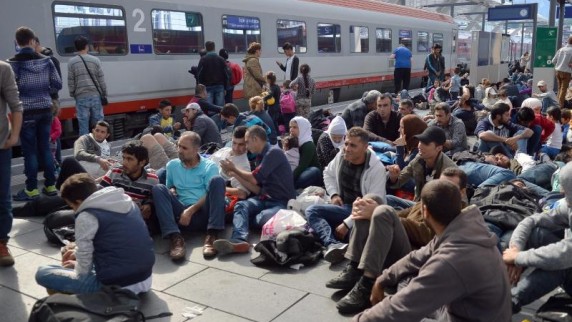By Brian Casey McDermott
4 Transculturality
According to Welsch, from the macro- (in terms of large scale groups of people and societies) to the micro-level (in terms of the small scale and individuals) the best way to understand how culture works is transculturally which means it transcends and goes beyond classical cultural boundaries. Nowadays cultures intermix, mingle, and flow in and out of each other which establishes the main characteristics of cultures in the modern world, thus cultures are influencing, developing, and changing in a constant and free moving way all the time and have always been going through this process. This concept of how cultures work in regards to transculturality is the most advantageous perception out of any of the concepts on how cultures function because the concept of transculturality covers global and local aspects along with universalistic and particularistic aspects as well, thereby transcending the polarized alternatives of globalization (in terms of uniformization) and particularism (cultural identity/exclusivity for a certain group of people) by allowing both to be combined and expounded upon one another. Transculturality has been discussed a great deal in this paper in regards to understanding how culture works on a grand scale (macro-level) but it is also very valid when considering things on an individual scale (micro-level). In regards to the micro-level aspect Welsch shares an example about how different writers of today express that they themselves have been molded and influenced not only by their homeland but from a plethora of various countries in regards to their own literary writing. He emphasizes that even on the individual level that our own personal cultural formation is transcultural and that in the future the new and rising generations will be even more so. He goes on further to give a warning that cultural identity and national identity should not be equated with one another and that the two terms should be strictly separated. He explains further how the formation of our own cultural formation is one of our basic rights and should be dealt with and sought after as such. The brining together and connecting of various transcultural components as individuals are what enables us to become better and more competent individuals pointing to the fact that we are taking the best characteristics and habits of each culture thus developing us into cultural hybrids.
__________________________________________________
Contents
2 Traditional Concept of Single Cultures
2.1 Welsch’s Critique of The Traditional Concept of Single Cultures
3 Interculturality and Multiculturality
3.1 Interculturality and Welsch’s Critique
3.2 Multiculturality and Welsch’s Critique
4 Transculturality

Pingback: Transculturality and the Refugees in Germany (IV) | Galicien Zentrum der Universität Heidelberg
Pingback: Transculturality and the Refugees in Germany (VII) | Galicien Zentrum der Universität Heidelberg
Pingback: Transculturality and the Refugees in Germany (VI) | Galicien Zentrum der Universität Heidelberg